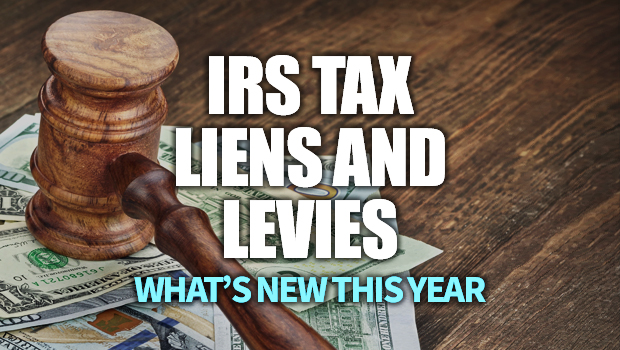The IRS is one of the most persistent and effective debt collection organizations. There are plenty of reasons to explain why, but two major reasons have to do with its ability to place a tax lien or levy on a taxpayer’s property.
What Are Tax Liens and Levies and What’s the Difference?
A tax lien is a legal claim placed on a person’s property as a result of an unpaid tax debt. The IRS, California’s Franchise Tax Board or any other state tax authority can file a lien so it becomes part of the public record.
The purpose is to inform the general public that the IRS has a financial interest against the owner of the property and that the property shouldn’t be sold until the tax debt gets paid off first. Tax liens can apply to almost any type of asset, although they are common with real estate.
One reason for this is because real estate buyers will usually complete due diligence to see if the property they’re trying to buy is encumbered in any way. This might include a creditor or someone else claiming ownership of it.
As bad as a lien sounds, it’s not as bad as a levy. An IRS tax lien involves the IRS claiming a legal interest in the property. In contrast, the levy involves the IRS taking possession or control of the property.
Two common tax levies involve paychecks and bank accounts, where the IRS will place a levy on either, then starting taking money out of the bank account or paycheck.
What’s New With IRS Tax Liens and Levies?
In 2020, the IRS implemented its People First Initiative. This was in response to the coronavirus pandemic and the financial strain it was placing on many taxpayers. Part of this initiative included the suspension of the automatic creation of IRS liens and levies, as well as liens and levies initiated by IRS field officers. But with the slow return to normal, the IRS has begun resuming its tax debt collection actions.
For example, in the summer of 2021, the IRS began sending out automated letters to taxpayers who owe back taxes. This includes notices of outstanding tax balances and tax lien notices. Around that same time, the IRS income tax levy program began resuming operations.
The IRS has also begun ramping up other tax collection activities. For instance, for seriously delinquent tax debts, the IRS works with State Department to deny the passport application or revoke the passport of a taxpayer with tax debts of more than $54,000 and for which a tax lien has been filed (and all administrative remedies exhausted) or a tax levy issued.
Do You Owe Back Taxes to the IRS?
If you receive a letter from the IRS indicating it intends to place a lien or levy on your property, do not ignore it. If you’re not sure how to respond, don’t hesitate to reach out to The Law Offices of LaDonna T. Kienitz. You’ll get a free case evaluation which can help you decide what to do next.
The good news is Kienitz Tax Law is here to help you with your tax issues. Schedule your FREE consultation today!

